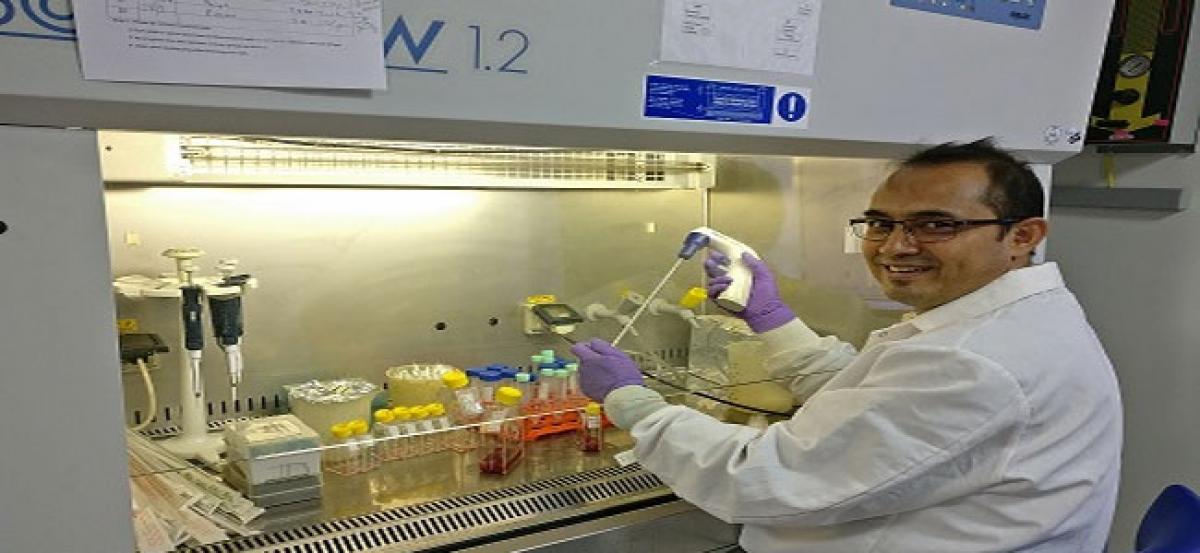Live
- A tribute to Atal Ji, the statesman who shaped India with his vision & resolve
- Christmas in India is much more than religious festivity
- Tirupati: UTF office-bearers elected unanimously
- Tirupati: SP seeks public cooperation to check crimes
- State govt committed to protect Wakf lands: Shariff
- Tirupati: 8 held; 69 red sanders logs seized
- Govt Schemes: Take steps to achieve loan targets says Collector to pvt banks
- Consumer rights protection is a shared social responsibility
- High Court relief for KCR, Harish Rao
- Visakhapatnam: Class VIII boy allegedly commits suicide
Just In

Despite efforts over the decades by scientists across the world, malaria continues to be a major vector borne disease particularly in Asia, Africa and South America.The World Health Organisation’s malaria report for 2016 estimated that globally there were 216 million cases with 445,000 deaths.
Despite efforts over the decades by scientists across the world, malaria continues to be a major vector borne disease particularly in Asia, Africa and South America.The World Health Organisation’s malaria report for 2016 estimated that globally there were 216 million cases with 445,000 deaths.
Malaria parasite, though a tiny single-celled organism, has highly complex life cycle. It has 15 different stages and they occur in different cellular environments. The protein make up of the parasite also substantially differs from stage to stage and several organelles in the cells keep varying.
Many organelles, particularly those required for the parasite to enter host cells, are produced and disposed off as and when required. Additionally, the parasite not only breaks down host cellular contents to obtain nutrients but also enslaves many host proteins for its benefit.
Scientists have been trying to come up with strategies to defeat the parasite. Researchers at the Hyderabad-based Centre for Cellular and Molecular Biology (CCMB) are working towards developing a whole parasite vaccine that can be conditionally attenuated when given to humans.
Speaking to India Science Wire, Dr Puran Singh Sijwali, principal scientist at CCMB, who heads the team working on the vaccine, said “we have been developing conditionally attenuated parasite lines and testing them in mouse models. One of the lines is showing promising results. We now have to develop a parasite line for human use.”"The basic problem is that malaria parasite species that infect human and mouse are different. "
Dr Sijwali conceded that the task ahead was not a cake walk. “The basic problem is that malaria parasite species that infect human and mouse are different. We can adopt the concept that we have validated using mouse malaria species for developing a vaccine for human malaria parasite also. Importantly, the target used for conditional attenuation is also present in human malaria parasite.
But we cannot be sure how effective it would be. Culture tests can give indication for attenuation. However, one has to do clinical trials with human volunteers to test whether the attenuated parasites will function as vaccines.” The whole process could take several years.

© 2024 Hyderabad Media House Limited/The Hans India. All rights reserved. Powered by hocalwire.com







